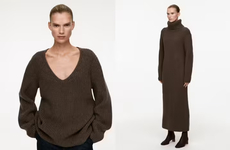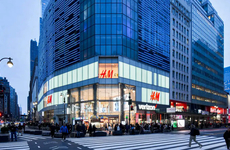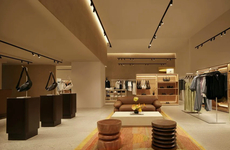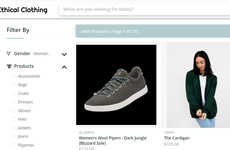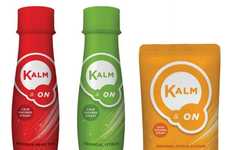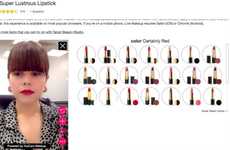
H&M's 'Arket' Website Emphasizes Where Each Product is Made
Laura McQuarrie — October 16, 2017 — Business
References: arket
H&M's Arket prides itself on being a modern-day market for consumers that provides quality clothing and accessories for men, women and children alongside a variety of goods for the home. Although there are many retailers that provide similar offerings, Arket sets itself apart by emphasizing transparency online.
As well as being able to filter and search the products on the Arket website by department, pattern, color and material, shoppers may also choose to shop where the items are made. Arket's current product selection includes goods that are made in China, Italy, Turkey and Austria. To highlight the origins of each product all the more, the individual product pages also include a map that pinpoints the region in which an item was made.
Arket also focuses on sustainability by offering goods made with recycled cashmere, and recycled polyester that comes from post-consumer PET bottles.
As well as being able to filter and search the products on the Arket website by department, pattern, color and material, shoppers may also choose to shop where the items are made. Arket's current product selection includes goods that are made in China, Italy, Turkey and Austria. To highlight the origins of each product all the more, the individual product pages also include a map that pinpoints the region in which an item was made.
Arket also focuses on sustainability by offering goods made with recycled cashmere, and recycled polyester that comes from post-consumer PET bottles.
Trend Themes
1. Transparency in Retail - Emphasizing the origin and production process of products can enhance consumer trust and loyalty.
2. Customizable Shopping Experience - Allowing consumers to filter and search products based on specific attributes or origin provides a personalized and tailored shopping experience.
3. Sustainable Fashion and Materials - Offering products made with recycled materials can attract environmentally conscious consumers and contribute to a circular economy.
Industry Implications
1. Fashion Retail - Fashion retailers can adopt transparency practices to differentiate themselves and appeal to socially conscious consumers.
2. E-commerce - E-commerce platforms can develop features that allow shoppers to easily filter and search products based on their preferences and values.
3. Sustainable Manufacturing - Manufacturers can explore the use of recycled materials in their production processes to meet the growing demand for sustainable products.
5.8
Score
Popularity
Activity
Freshness


